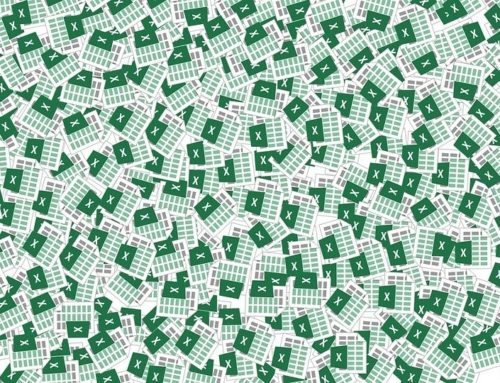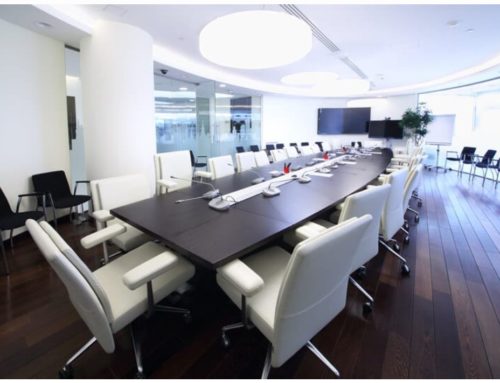Should you Buy or Lease a Copier for your Business?
As a business owner, almost nothing is as important as making sure your money is stretched as far as possible. You analyze every expense, evaluate investments, and look for ways to streamline and save.
Your office copier is an integral part of your daily operations. Multi-function copiers combine crucial functions such as copying, printing, scanning, and faxing. However, as the cost of these machines usually takes up a big chunk off the budget, the contemplation of whether to buy or lease a copier / printer is a common consideration for most companies.
So, let’s start by exploring some of the relative benefits of both purchasing and leasing.
Benefits of Leasing a Copier
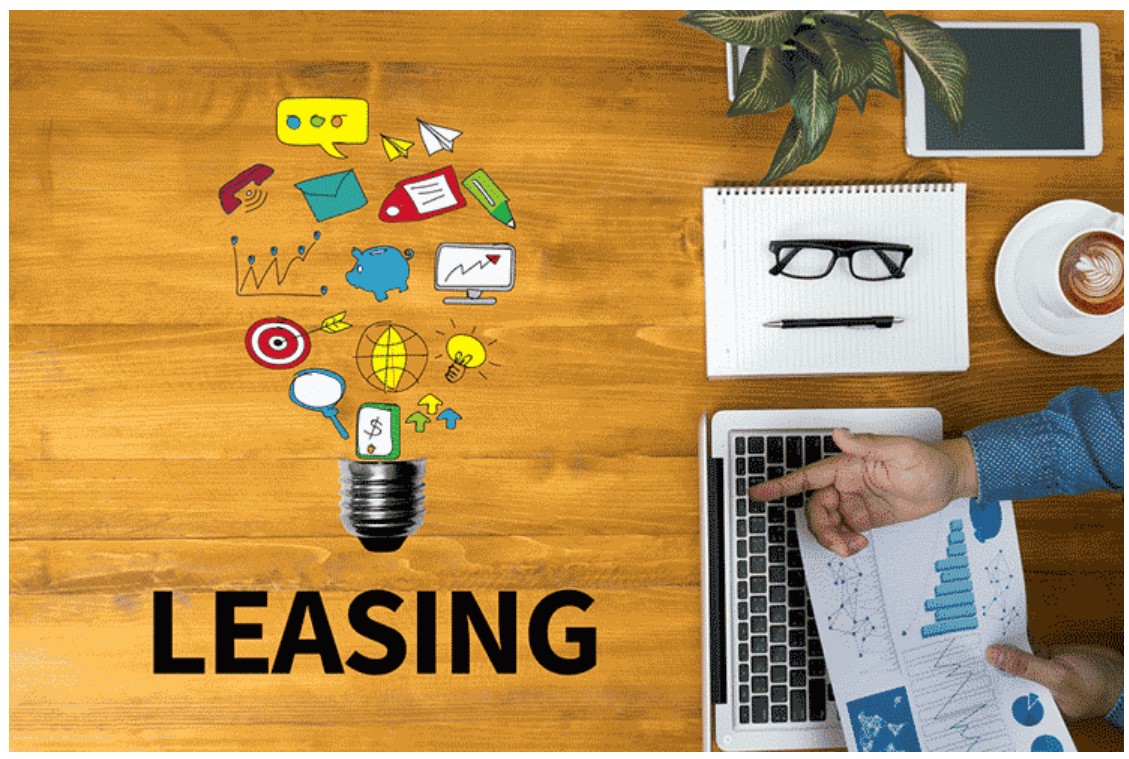
No out of pocket expense
When leasing a copier there is generally no down payment or any form of out of pocket expense which helps to preserve a company’s cash flow. In almost all cases lease agreements require no down payment and usually not even a first payment in advance. A customer simply agrees to a stream of payments that will begin several weeks after the installation of the machine.
Easier to keep up with up with competitors
Leasing can enable your small business to acquire sophisticated technology, such as a fast, feature rich Multifunction Printer (MFP) with a host of productivity enhancing accessories that might be otherwise unaffordable. The result: You are better able to keep up with your larger competitors without draining your financial resources.
No Depreciation Schedule
When leasing a copier there’s no need to monitor the depreciation cost over a five year period which makes the administrative aspect of tax planning more streamlined. When you purchase a copier you can deduct the depreciation of the hardware. However, in most cases when leasing a copier, you can deduct all of the payments because it is considered a pretax business expense.
Copier Servicing
Whether you choose to purchase or lease, your options regarding maintenance agreements are the same. Regardless of whether purchasing or leasing you can set up an all-inclusive maintenance agreement that will cover any and all service, parts and supplies needed to maintain the copier. In summary you will have the same service/ maintenance options whether you lease or purchase so this aspect does not need to enter into your decision of whether you choose to purchase or lease.
Consistent operating expense
When leasing a copier you have the benefit of a consistent operating expense that remains the same over the entire lease term making for easy and accurate budget forecasts.
Taking advantage of the economy and betting against inflation
When you enter a lease, you sign up to a fixed rate. This means the rate is fixed for the lifetime of the lease agreement. Even if lease and loan rates rise in the future, you are still paying the same rate you originally agreed to at the signing of your lease.
Better than a conventional loan
Another type of financing that some businesses look at is a conventional loan from their financial institution or bank. A lease is more attractive since there’s no down payment, won’t tie up your credit lines and (quite often) has a lower monthly payment. Conventional loans can also have a variable interest rate so this can also affect your financing decision.
Benefits of Purchasing a Copier
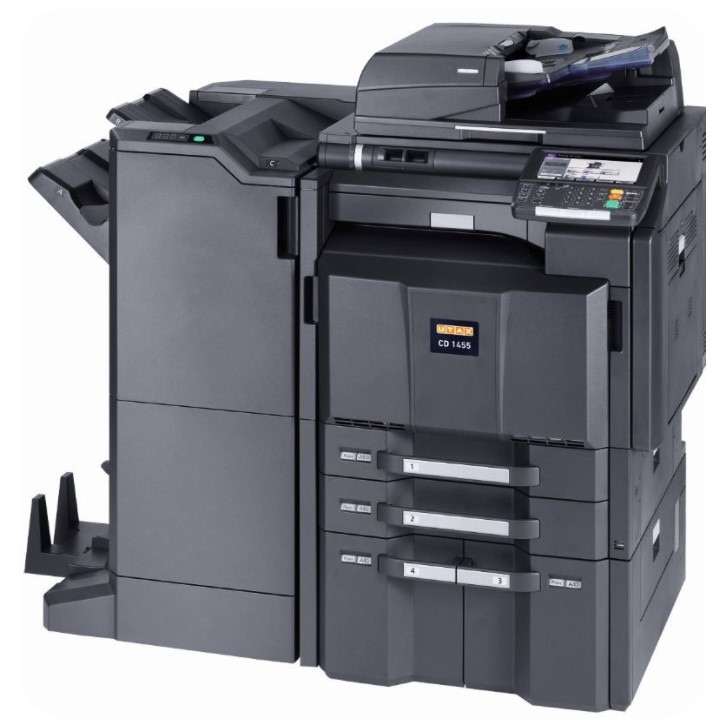
No monthly payments
When you purchase a copier outright one of the benefits is that you have one less monthly invoice and monthly payment to process. When leasing a copier you will have to process and pay a monthly lease invoice each month.
No Finance Charges or Interest
When purchasing a copier you don’t have to pay the additional finance charges that are required when you lease the copier.
Tax Benefits
In many circumstances a company can write off the entire purchase cost of a business copier in the year that it was purchased without having to depreciate it over the five year depreciation schedule.
Retain the value of the asset
When you purchase the copier, you own it for the entire useful life of the equipment. When leasing a copier, however, you will typically upgrade to a new copier at the end of the lease term.
Flexibility to make changes
Many experts suggest that leasing provides you with the flexibility to easily upgrade to a newer or higher-end machine. These same experts suggest that this is not an option when purchasing a copier. The opposite is actually true. When you own a copier you have the flexibility to trade in your existing copier and use the trade-in value to offset the cost of a new machine. When leasing, however, there is always a significant penalty for early buyout or early termination. In addition, upgrading to a new or different machine prior to the scheduled end of the lease term means you have to satisfy the buyout first.
Extend the useful life of your copier after your initial purchase
When purchasing a copier you can continue to use the copier as it is functioning and meets your needs. Many companies use purchased copiers for seven to eight years or longer. Most copier leases, on the other hand, are for either 36 or 60 months. In the vast majority of cases companies simply roll from one lease to the next lease. Consequently, they are always paying the full cost plus finance charges for a new copier every three or five years.
Buy Vs Lease – The Differences
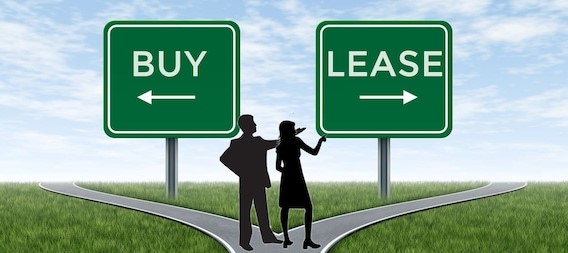
The difference between buying and leasing can seem straightforward. However, for many purchasing departments, digging into the advantages and disadvantages, in detail, can make the decision difficult.
Essentially, buying an office copier means the organization is making a single purchase, outright. They own the unit and will be responsible for maintenance, as well as resell or disposal. Sometimes a purchase can be negotiated with a maintenance package, depending on the copier. However, it will often be for basic repairs that fall under a manufacturer’s warranty, rather than actual maintenance that ensures a long life.
Leasing means a third party owns the machine. This can be tricky when it comes time to negotiate contract terms. However, it is often preferred for companies that want a reliable maintenance package, regular upgrades for their growing business, and reliable monthly costs without the hassle of eventually getting rid of obsolete equipment.
Copier leases do not result in automatic ownership at the scheduled end of the lease term. Even upon completion of the scheduled term of payments the lessee does not own the asset once the final payment has been made.
The lessee has the following options at the end of the term based on their discretion:
- Purchase Option
The lessee has the option to purchase the copier at the Fair Market Value which is determined by the lease company based on market value at the time the purchase option is exercised.
- Terminate Option
The lessee has the option to terminate the existing lease agreement at the scheduled maturity date so long as the lessee has provided the lease company with timely written instructions indicating this option. This window is generally somewhere between 30 and 90 days prior to the maturity date of the original term.
- Renewal Option
The lessee has the option to renew the existing lease agreement for the same payment as is provided during the initial term of the lease. Should the lessee opt to renew the agreement there is no action to be taken as the existing lease conditions dictate this renewal in lieu of written notification instructing otherwise.
Introducing Managed Print Services (MPS)
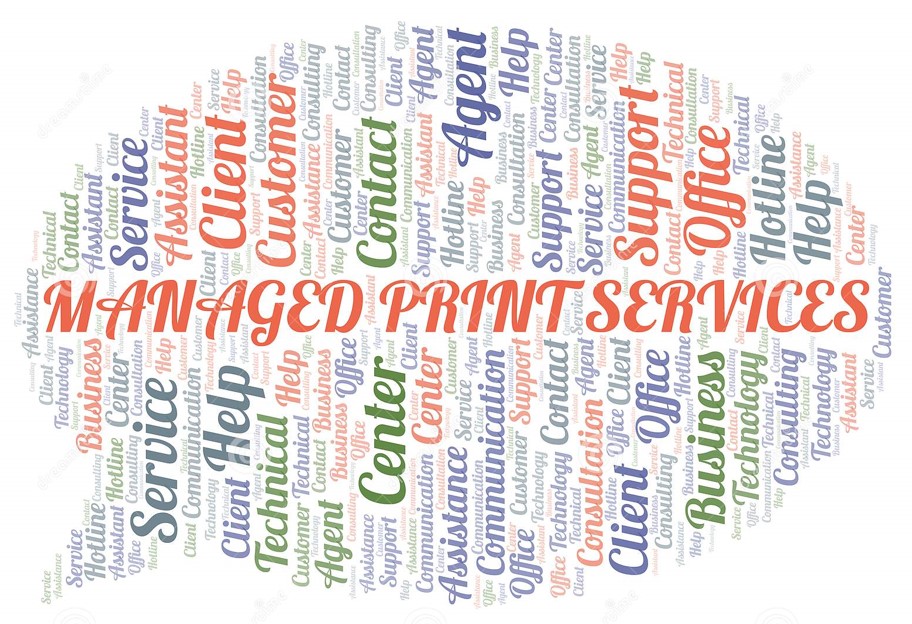
Managed Print Services, also known as MPS in short, is a service that manages all aspects of your business printing needs. Machines include printers, copiers, scanners and faxes; and managed services include maintenance and toner replenishment.
Think of MPS as an all-in-one package offered at a monthly fee by print providers. Some of these providers have taken MPS one step further by being able to collect data that track print usage down to department level.
Managed print services (MPS) are used to gain visibility and control of the printing infrastructure, which helps the organizations to save money and boost productivity. Managed print also helps to improve environmental sustainability and document security.
Managed print services (MPS) usually begins with a requirements gathering process. The next step includes a partial or complete replacement of existing hardware, including scanners, printers, faxes, photocopiers, and multifunction (MFP) devices. The service provider oversees as well as services hardware and provides parts and supplies. An MPS provider may also monitor and report on usage, problems, and user experience.
While cost-savings remain a key focus of MPS, the value they bring to organizations now extends well beyond this. Today, MPS providers take pains to understand a business as a whole and how it functions, in order to deliver the best outcomes.
Buying Vs Leasing a Copier

In conclusion, the decision on whether to buy, lease or rent a copier / printer ultimately depends on the spending capabilities of a business as well as their need for print. Commonly, companies tend to find more value in renting a copier because a lump sum amount is not needed, and it comes with maintenance services.
But why not take it one step further with Managed Print Services? MPS is not only based on a monthly payment scheme, it also provides more value as the services provided are a lot more than just maintenance services.
At Al Reyami Technologies, we understand the business needs of our clients and will provide a Managed Print Services package based on the solution and services that best fits your requirements.
If you are looking to improve the way that print is being managed in your organization, contact us now
Author

